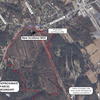New Scotland budget for 2022 up 2%, taxes down 1.5%
NEW SCOTLAND — At $8.65 million, the preliminary spending plan the town board is set to adopt on Wednesday as New Scotland’s 2022 budget is up about 2 percent over this year.
Property owners escaped a fifth straight year of incremental tax increases when the town board elected to cut property taxes for next year after initially proposing a rate hike in early October.
For 2022, the town is proposing a tax rate of about $1.50 per $1,000 of assessed value for all New Scotland property owners — including those who live in the village of Voorheesville — down from $1.52 per $1,000 of assessed value this year. Last month, when they were first presented with the tentative budget for 2022, board members signed off on an increase of 3 cents per $1,000 of assessed value.
The town is again under the state-set levy limit.
New Scotland’s 2022 levy, the amount to be raised in property taxes, is expected to be about $3.1 million, of which about $1.55 million comes from the town-wide tax.
While the town-wide tax rate is set to decline next year, the tax levied on all non-Voorheesville New Scotland residents, the town-outside-the-village rate, will increase from about 41 cents per $1,000 of assessed value to approximately 42 cents per $1,000. In addition, property owners have to pay taxes associated with New Scotland’s benefit districts like those for fire, ambulance, emergency medical services, water, light, and sewer — some of which are set to increase, while others will decline in 2022.
Board members approved next year’s tax cut in part because of the better-than-expected financial situation the town will be in at the end of year.
This time last year, the town estimated draining about $323,000 from the B Fund’s rainy-day account. The B Fund receives nearly all of its revenue from county sale-tax revenue and its appropriations largely cover the highway operations.
New Scotland now anticipates adding approximately $73,000 to the reserve before the year is over. In 2022, the town estimates it will use about $99,000 of B Fund reserve. For its A Fund reserve, the 2021 budget included a $10,500 drawdown; the town now estimates it will instead add $94,000 to the reserve this year.
The town’s better-than-forecasted fiscal footing for 2021 can be attributed to an unanticipated bump in sales-tax revenue from the county; cost-saving measures implemented by the town board partway through last year; and worker retirements.
Albany County’s sales-tax revenue is up about 20.8 percent in the first nine months of this year compared to January through September 2020, from about $193.7 million to $234 million. New Scotland estimates it will end 2021 with $2.24 million in county sales tax, a number the town had not anticipated in October 2020 when it tentatively estimated about $1.97 million in tax revenue for this year but ultimately adopted a budget expecting $2 million in sales tax. For 2022, the town is expecting $2.1 million in revenue from the county.
The town’s 2021 share of the mortgage-recording tax was another unanticipated boon to revenue. New Scotland received about $216,000 in mortgage taxes for the first six months of this year, which was revenue based on a mortgage count of 262, and was collected for the six-month period between October 2020 and March of this year. The town now expects to end 2021 having received $360,000 in recording taxes — it had planned on $235,000 for the entire year. For next year, New Scotland anticipates $265,000 in mortgage taxes.
The mortgage-tax revenue received by the town helps to finance the A Fund. Next year, New Scotland expects to use about $148,000 of fund balance from the A Fund; a month ago, the town anticipated not using any A Fund reserves in 2022.
The town estimates it will use about $290,000 — up from $108,000 last month — of its $3.9 million in unreserved fund balances next, a 17-percent decline from what the town thought it needed to close this year’s budget gap.
The salaries for the town’s full-time elected officials are increasing in 2022, from about $65,000 to $67,500 for supervisor; about $60,000 to $62,500 for town clerk; and approximately $76,400 to $79,400 for highway superintendent. In part-time posts, the town’s two judges salaries would increase from about $29,000 to about $30,200, while each of the four town board members would earn about $10,500, a $400 increase over this year

